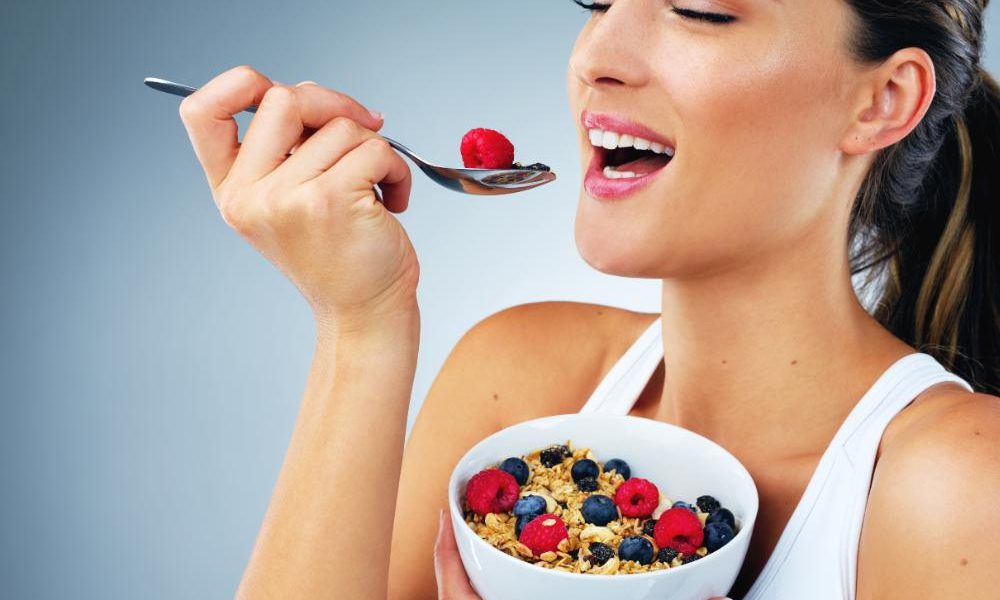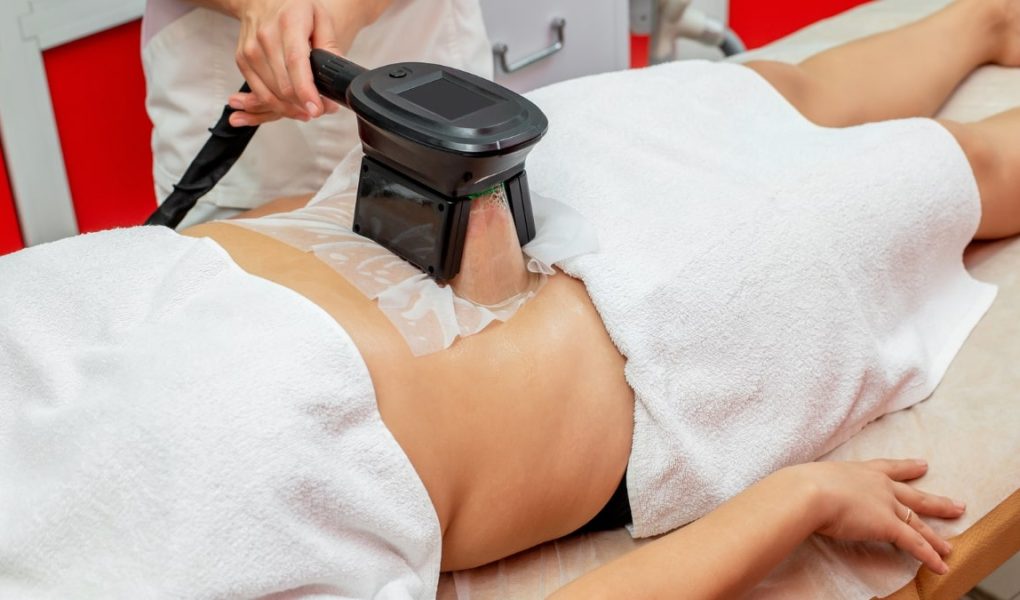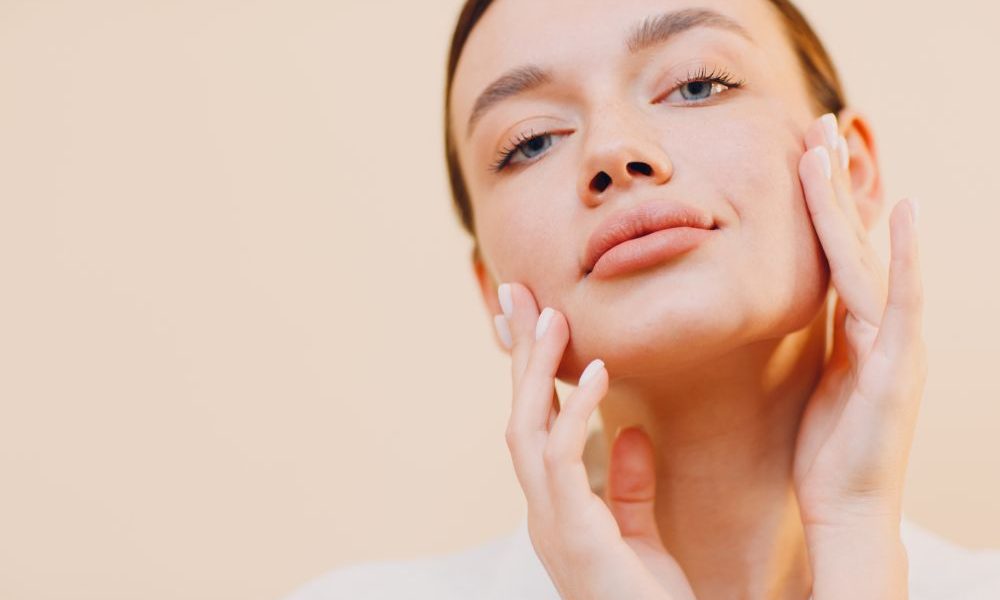
We all know the old saying, “You are what you eat.” When it comes to your skin and hair, this couldn’t be more true. The food you consume plays a significant role in determining the health and appearance of your skin and hair. Understanding the connection between diet and beauty can help you make informed choices that lead to a radiant, youthful glow. This guide explores how food impacts your beauty, with insights from experts and supporting scientific studies.
The Gut-Skin Connection
The Importance of Gut Health
Dr. Nigma Talib, a naturopathic doctor, emphasizes the strong link between gut health and skin health: “Your skin is a reflection of your gut. A healthy gut means healthy, glowing skin” (Source: Nigma Talib Website). The gut microbiome, the community of microorganisms living in your intestines, plays a crucial role in maintaining skin health. An imbalance in this microbiome can lead to inflammation, which often manifests as skin issues like acne, eczema, and rosacea.
Dr. Whitney Bowe, a dermatologist, concurs: “The gut-skin connection is real. A healthy gut microbiome is essential for clear, radiant skin” (Source: Dr. Whitney Bowe Website). Consuming foods that support a healthy gut can therefore have a direct, positive impact on your skin.
I struggled with stubborn acne for years and tried countless topical treatments. It wasn’t until I focused on improving my gut health by eating more probiotic-rich foods like yogurt and kimchi that I saw significant improvements in my skin. This experience taught me the power of nourishing my body from the inside out.
Nutrients for Radiant Skin
Antioxidants: The Skin Protectors
Antioxidants help protect your skin from damage caused by free radicals, which are unstable molecules that can harm skin cells. Foods rich in antioxidants, such as berries, nuts, and dark leafy greens, are essential for maintaining healthy, glowing skin.
Dr. Mehmet Oz, a cardiothoracic surgeon and TV personality, states: “Food is the most powerful drug you put in your body every day. It can either heal you or harm you” (Source: DoctorOz.com). Incorporating antioxidant-rich foods into your diet can help to protect your skin from the inside out.
Omega-3 Fatty Acids: The Hydrators
Omega-3 fatty acids are crucial for maintaining the skin’s lipid barrier, which keeps it hydrated and supple. These healthy fats also reduce inflammation, helping to prevent conditions like acne and eczema. Include fatty fish like salmon, flaxseeds, and walnuts in your diet to reap these benefits.
Vitamins A, C, and E: The Anti-Agers
Vitamins A, C, and E are vital for skin health and anti-aging. Vitamin A promotes cell turnover, vitamin C boosts collagen production, and vitamin E protects against UV damage. Carrots, sweet potatoes, citrus fruits, and almonds are excellent sources of these vitamins.
Zinc: The Healer
Zinc plays a critical role in skin repair and regeneration. It helps combat inflammation and reduce acne. Foods high in zinc include pumpkin seeds, chickpeas, and lentils.
A comprehensive review in the Journal of the American Academy of Dermatology highlights the impact of various nutrients on skin health, demonstrating the significant influence of diet on skin conditions like acne, aging, and wound healing (Source: National Institutes of Health).
Foods for Lustrous Hair
Protein: The Building Block
Hair is primarily made up of protein, so consuming enough of it is essential for hair growth and strength. Eggs, lean meats, beans, and legumes are excellent sources of protein.
Biotin: The Growth Booster
Biotin, also known as vitamin B7, supports hair growth and strength. Foods rich in biotin include eggs, almonds, and sweet potatoes.
Iron: The Energizer
Iron deficiency can lead to hair loss, so it’s important to include iron-rich foods in your diet. Spinach, lentils, and red meat are great sources of iron.
Vitamin A: The Scalp Soother
Vitamin A helps produce sebum, which keeps your scalp moisturized and healthy. Carrots, sweet potatoes, and kale are rich in this essential vitamin.
Kimberly Snyder, a celebrity nutritionist, explains: “Beauty truly does start from the inside out. What you eat plays a major role in the health and vitality of your skin and hair” (Source: Kimberly Snyder Website).
After noticing my hair thinning, I started paying more attention to my iron intake by incorporating more spinach and lentils into my meals. Over a few months, my hair became thicker and more resilient.
Hydration and Beauty
Drink Plenty of Water
Hydration is key for both skin and hair health. Water helps flush out toxins, keeps your skin plump, and supports overall bodily functions. Aim to drink at least eight glasses of water a day.
Herbal Teas and Hydrating Foods
In addition to water, herbal teas and hydrating foods like cucumbers, watermelon, and celery can help keep you hydrated.
Dr. Perricone, a dermatologist, emphasizes: “The foods you eat can have a profound impact on the way you look and feel. A diet rich in antioxidants and healthy fats can help to protect your skin from damage and promote a youthful glow” (Source: Perricone MD Website).
Switching from coffee to herbal tea throughout the day not only improved my hydration levels but also made my skin look more radiant and less tired.
Foods to Avoid for Better Skin and Hair
Sugar: The Skin Saboteur
High sugar intake can lead to inflammation and breakouts. It can also accelerate the aging process by damaging collagen and elastin fibers.
Processed Foods: The Inflammatory Culprits
Processed foods often contain unhealthy fats, additives, and preservatives that can trigger inflammation and worsen skin conditions. Opt for whole, unprocessed foods whenever possible. On that note, you may also want to swap your morning cuppa to use Bun organic coffee beans instead — these beans are grown without the use of toxic pesticides that can harm your health.
Dairy: The Acne Aggravator
Some studies suggest that dairy products can exacerbate acne in some people. If you notice breakouts after consuming dairy, consider cutting back or switching to plant-based alternatives.
A study in Dermato-Endocrinology links high-glycemic load diets and dairy consumption to increased acne risk, emphasizing the impact of food choices on skin clarity (Source: National Institutes of Health).
After eliminating most processed foods and reducing my sugar intake, I saw a dramatic improvement in my skin clarity and overall health. It was challenging at first, but the benefits were well worth it.
Expert Tips for Radiant Skin and Hair
Balance Your Diet
A balanced diet rich in fruits, vegetables, lean proteins, and healthy fats is essential for glowing skin and healthy hair. Dr. Whitney Bowe highlights: “A healthy gut microbiome is essential for clear, radiant skin” (Source: Dr. Whitney Bowe Website).
Practice Mindful Eating
Pay attention to what you eat and how it makes you feel. Mindful eating can help you make better food choices and enjoy your meals more.
Include Antioxidant-Rich Foods
Antioxidants protect your skin and hair from damage caused by free radicals. Berries, dark chocolate, and green tea are excellent sources of antioxidants.
I started incorporating more antioxidant-rich foods into my diet after reading about their benefits. Adding a handful of berries to my morning oatmeal and sipping green tea instead of coffee made a noticeable difference in my skin’s radiance.
Scientific Backing
Diet and Dermatology
A review article published in the Journal of the American Academy of Dermatology highlights the importance of nutrients like vitamins A, C, and E, as well as omega-3 fatty acids, for skin health (Source: National Institutes of Health).
The Role of Diet in Acne
A study in Dermato-Endocrinology links high-glycemic load diets and dairy consumption to increased acne risk, emphasizing the impact of food choices on skin clarity (Source: National Institutes of Health).
Skin Health and Diet in Adults
Research in Dermato-Endocrinology reveals a correlation between high vegetable and fish intake with fewer wrinkles, suggesting that a healthy diet can promote youthful skin (Source: National Institutes of Health).
Dietary Interventions for Acne Vulgaris
A meta-analysis in JAMA Dermatology demonstrates the effectiveness of dietary changes, such as reducing sugar and dairy, in improving acne symptoms (Source: National Institutes of Health).
Association of Diet with Skin Wrinkles in Japanese Women
This study in the Journal of Nutritional Science and Vitaminology found that higher intake of green and yellow vegetables was associated with fewer facial wrinkles in middle-aged women, supporting the role of diet in skin aging (Source: National Institutes of Health).
Conclusion
Your diet plays a crucial role in the health and appearance of your skin and hair. By incorporating nutrient-rich foods, staying hydrated, and avoiding foods that can trigger inflammation and breakouts, you can achieve a radiant complexion and healthy hair from the inside out. Remember, beauty truly does start from within, and the right foods can make all the difference.



